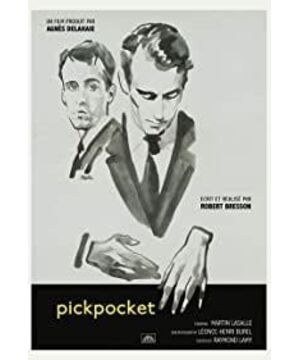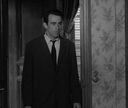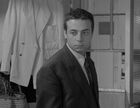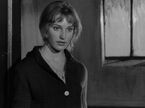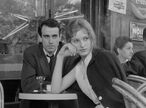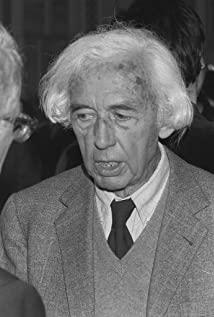First, Bresson is not a film master well-known to the majority of movie fans. Many celebrities only hear his name and do not see his movies. This is also foreseeable. For most people, a master like Bresson is always It means a good sleep while watching movies. But Bresson is the idol of many famous artists in the film industry. Among them, the most famous comment on him is Jean-Luc Godard: "Bresson is to French movies, just as Johannes Chrysostomus Wolfgangus Theophilus Mozart is to Austrian music. Stoyevsky's to Russian literature." This is evident from the high evaluation.
Second, it is difficult to see "techniques" in Bresson's films, that is, the traditional visual skills, and some of Bresson's films use a large number of voice-overs. This makes many people feel "boring", even "very ugly".
Today, let us analyze Bresson through a piece of "Pickpocket".
I only bought the CC version of "Pickpocket" last week. In addition to the wonderful movies, there are a lot of extras, including the documentary "Models of Pickpocket", "Bresson 1960 Interview Record" and so on. It is very valuable Gao, through various aspects to show the shooting situation of "Pickpocket" at that time, and also enable the viewer to understand "Pickpocket" more comprehensively.
Why do I say that "Pickpocket" is the best French movie? I personally like it a little bit, but I don't comment on it, because the movie itself has always been awesome. When we watch a movie, how do we think it is a good movie? The layman is watching the excitement, watching the stories, watching the stars and watching special effects, but what should a person who really wants to learn movies look at? What we look at is not just what story he tells, but how he tells the story. This is where the role of the director is reflected. Similarly, we have to look at the light, sound, and time and space of a movie. These are the four most basic elements of a movie. How to use these four elements has also become a benchmark for the director's ability. "Pickpocket" obviously did the best the director wanted to express.
We say that this film is the highest artistic achievement of Bresson’s Minimalism . His switching is always not redundant or lacking. The cold editing does not highlight the slightest emotion. This is what Bresson wanted. But coldness does not mean that there is no rhythm. Bresson’s light and sound have rhythm. For example, at the beginning of the racetrack, Bresson only kept the camera at the protagonist’s face (the protagonist conspired to steal something), and the protagonist looked blankly at the face. In the front, there is almost no movement in the picture. As we said before, the audience will feel bored if there is no movement. At this time, the audience loses interest in the things on the picture. At this time, the space outside the painting works, and the audience will Thinking "What the hell is this person doing?" and guessing what his body is doing outside the painting, Bresson cut into the close-up of the protagonist's hand about to pickpocket, and cut back to the protagonist's face close-up again. This switch seems to be nothing. Special, but the rhythm is up. The audience knows that the protagonist is about to steal something, but they can only see his expressionless and nervous face. The audience will want to see if he has stolen. At this time, Bresson took advantage of the sound, because in the racecourse, there are always horse hooves and the cheers and roars of the audience when the horse runs past. Bresson’s lens was still aimed at the protagonist, and the sound of horseshoes from far to near and then from near to far came from outside the painting. The audience around the protagonist also boiled, began to commotion, and the voices of outsiders were full of noise. We only saw the protagonist move slightly. Then the camera cuts to a close-up of the protagonist's hand, and the theft is successful. The rhythm of this passage is particularly good. Bresson used the shots with almost no movement (the role here is similar to the empty shots) and the switching of sound and proper hand close-ups to stretch the rhythm, which not only succeeded in attracting the audience but also Conveys a sense of tension. This kind of photoacoustic effect is everywhere in the film, and it is not dull at all, but it is amazing.
Similarly, Bresson's time and space are particularly free, and we can feel his concept of time and space from such an example. The protagonist followed a great Pickpocket into a bar and became friends with him. At this time, the Pickpocket got up from his seat and asked the protagonist to follow him, and then draw from the right. At this time, the protagonist stood up and took a photo. The camera shakes forward, and the protagonist’s scene slowly changes from the middle shot to the close shot. The protagonist walks forward and looks at the front right (I took the side facing the audience as the front). At this time, it is like a three-camera shot. Cut, it becomes Pickpocket's back shot, but we found that the space of the front and back shots has completely changed. When the protagonist was shot, he was still in the bar, and the back shot of Pickpocket, the space was already in another room, and the time was obviously different. One second after the camera was switched. Bresson only used a positive and negative shot, not only a good narrative, but also a complete switch of time and space, which is a very powerful place.
And Bresson’s unique rhythm is also worth mentioning. In "Pickpocket", there are many scenes where the protagonist keeps a diary. Bresson always handles it like this: first take a picture of the diary that the protagonist has already written, and look at the words on it. After about 1 second, the voice-over is the words that we can see clearly. The voice-over is switched at the same time. The visual display is what is written in the diary and what the voice-over says, so he follows The visual images displayed are all things we already know how to develop. Then why does Bresson want to use three methods to perform a thing that can be performed with only one method and use it repeatedly? Since there is a diary and vision, what is the use of the voice-over? This treatment is also used in his " Diary of a Country Priest " (used throughout). I think André Bazin 's analysis is correct. Bresson first expressed the story with diary text. At this time, the voice-over is emphasized. And the role of sentence segmentation, and then the visual image, because we knew the result at first, so at this time, the audience was forcibly pulled out, not paying so much attention to the story but simply looking at the picture, and Bresson said what he wanted It's the kind of tension and an objective view. Let the audience understand the plot in advance, and then simply use the picture to shape the atmosphere and let the audience think through the play. This is also a great advantage of Bresson.
In "Pickpocket", there is also a big charm, that is, actors. I think any director should watch "Pickpocket" well and understand how Bresson directed the actors. In this regard, Bresson can be called The greatest director.
There are a lot of things discussed from this, and I hope everyone will look at it calmly. Bresson has always used only non-professional actors, but the looks of those people in the film is beyond the reach of any professional actor. In the words of the documentary in the trailer, "I don't know whether that person was seen in "Pickpocket" or in life. I have never felt the movie and life become so blurred like today." The truth is Bresson has always insisted. He chose the actors according to the roles and gave them a rough script. According to those amateur actors later, "I never knew that I would become an actor in "Pickpocket". Bresson chose me. It gave me an unspeakable force." Bresson never told the actors how he felt. He let the actors remember the general story, and put them in the environment to act. When the actors were at a loss At that time, his only advice to actors was "Perhaps you can say that."
Nervous, serious, and expressionless are the scenery in Bresson's films, and because of these faces, his films have become the cold and objective films he hopes for. In this matter, Bresson has a unique method, unlike Alfred Hitchcock . At this point, I want to stop and criticize what Alfred Hitchcock said, "You only need to tell the actors what to do." This is. An irresponsible sentence, because I myself have a little experience in filming and directing actors. I have practiced Hitchcock’s words, but this sentence alone cannot control the actors at all. It will only make the actors incomprehensible. Of course Alfred Hitchcock This can be done. Who said that the actors in his hands are Bergman and Grant? And how many Bergman and Grant are there in the world? Some people say that the Kuleshov Effect can also be used , but I think this effect is still suitable for scenes where emotions are exposed and where emotions need to be expressed. But in life, who would expose their feelings? Everyone has to hide themselves. Besides, what Bresson wants is truth and wants to be really nervous. What should I do? Bresson retaken a shot dozens of times. At this time, he was polite and decent. He suddenly became a tyrant. He didn't tell the actors why the shot was retaken, nor did he tell any staff to let the whole set, especially The actor has a really nervous and numb face with no expression. Because when acting, whether professional or amateur, actors always want to "act", and physical fatigue and mental hindrance make them what Bresson really wants, and Bresson’s tyrant behavior is also done by others. of. The objective performances in "Pickpocket" where the actors did not express any emotions were created by Bresson.
In the tidbits, the actors thought: "Bresson artificially set a trap for us before the filming started, and we were in the state he wanted." "The psychological journey of filming with Bresson was What really changes is like real life." "Everything is tense, but Bresson is still so calm in his heart." "I am proud of being able to shoot "Pickpocket"."
Finally, in the aftermath of "Pickpocket", I really saw Bresson's own behavior and expressions. It was an interview with him in the studio by two hosts in 1960. I saw a person who Arthur Schopenhauer said that he really possessed outstanding mental abilities. I also always drift away, seeming to be a little afraid of and avoiding social interactions. And his words are so sincere. I ended this article with excerpts from some interviews I hand-copied from the DVD. In this interview, perhaps we can see more about Bresson.
Q: Do you like people to understand you?
A: I don't know if people understand me, but is it the movie or me? If it's a movie, I think. I like to let people watch it before they understand it. It feels like it comes before wisdom.
Q: In "Pickpocket", what do you want people to feel?
A: What I want to tell is not only a story. I want people to feel the atmosphere around a thief, and make people feel uneasy and uncomfortable. I want to show the loneliness of a thief.
Q: Have you ever encountered a thief?
A: I think I have encountered a few, but you won't know until you are actually robbed.
Q: An essential feature of your film is that you reject drama.
A: I reject drama, or rather, I try to reject it because it is not so easy to express through facial cues, gestures and sound effects.
Q: But you seem to be looking for some kind of counter-expression. Not only do you don't want him to perform, but you don't allow realism. It seems that your actors have no expressions and express less than real life.
A: I don't think so. I try to draw them towards automation, which takes up most of our lives.
Q: Do you think your movie is a pioneer?
A: No, I just think that the future movies will be farther away from theater, farther away from dramatization.
At last
Q: Do you feel lonely?
A: I feel very lonely. (Smiles), but that doesn't bring happiness.


